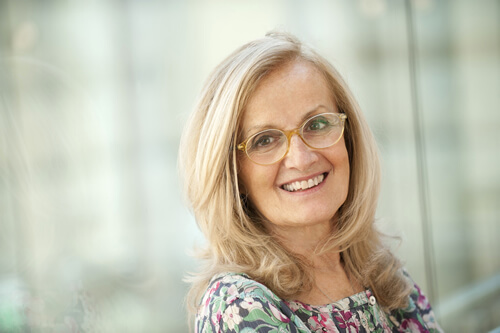Thirteenth International Summer School on Mind, Brain and Education
2018 October 16–20
Migrants and Refugees in the 21st Century: Children in and out of schools
Directors of the School:
Kurt W. Fischer, Antonio M. Battro and Sebastián J. Lipina
Director of the Course: Marcelo Suárez Orozco
Program Officer of the School: Lula Majdalani
Fondazione Reggio Children (Italy)
Professor Carla Rinaldi is the recipient of the 2015 LEGO Prize and Adelaide (Australia) Thinker in Residence 2012–2013. She has been the President of Reggio Children since 2007 and is the first President of the Reggio Children – Loris Malaguzzi Centre Foundation. She is Professor at the Department of Education and Humen Sciences at the University of Modena and Reggio Emilia. She worked side-by-side with Loris Malaguzzi, from 1970 until his death in 1994 in the municipal infant toddler and preschool system of Reggio Emilia, where she was the first pedagogical coordinator. She has been working as pedagogical/scientific consultant for Reggio Children, since 1994, following the supervision of all Reggio Children initiatives. She was responsible for research projects in ollaboration with Harvard University, the University of New Hampshire and the University of Milan – Bicocca. Professor Rinaldi has been vice-president of the Gruppo Nazionale Nidi-Infanzia (National Early Childhood Association) and has had tenures as visiting Professor at the Webster University (St. Louis, Missouri) and at the Colorado University (Boulder, Colorado). From 2004-2007, Carla Rinaldi was a member of the Reggio Emilia City Council. In 2007 and 2008, Carla Rinaldi was appointed as a consultant in several different Commissions of the Italian Ministry of Education. Carla Rinaldi has been a speaker at numerous seminars and conferences in Italy as well as in Europe, the United States, Australia and Asia. In 2011 she was invited to participate in the Presidential Conference on Early Childhood Education and Care (ECEC) “Excellence and Equity in Early Childhood Education and Care”, Budapest. In 2010 she participated in the UNESCO World Conference on Early Childhood Education and Care “Building the Wealth of Nations”, Moscow. Professor Rinaldi lectures frequently on the Reggio Emilia experience, and has published many articles, chapters, and books in Italian and English.

Reggio Emilia: a pedagogy for the 21st Century
Twenty years ago, Gerome Bruner said that a Reggio Emilia Preschool “is a special kind of place, one in which young human beings are invited to grow in mind, sensibility, and in belonging to a broader community. It is a learning community, where mind and sensibility are shared” (1998). For all these years we kept believing and fostering the idea that humans’ ability to shift from one kind of intelligence to another, from an expressive language to another, is not only an ability to be found in individuals, but is a capacity that involves the tendency to interact among many minds. Nowadays the concept of the extended mind is becoming more and more relevant in the scientific community, but we started to develop similar concepts by observing children’s work and interaction. In Reggio Emilia there are 17.000 immigrant minors, the 24% of the entire immigrant community. The minor immigrants account for the 20% of the minors in Reggio Emilia: this means that 1 out of 5 children is an immigrant. This surely is a great challenge, and we believe that by documenting children and adults’ learning processes we can still discover many unknown aspects of human mind. Moreover, from children’s inborn predisposition to welcome the representations and theories of others, by becoming capable to recognize and value others’ languages through the “pedagogy of listening”, we can contribute to create a community where children and adults become the protagonists of educational, cultural and political choices and therefore develop pedagogy for the 21st century.















